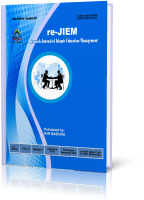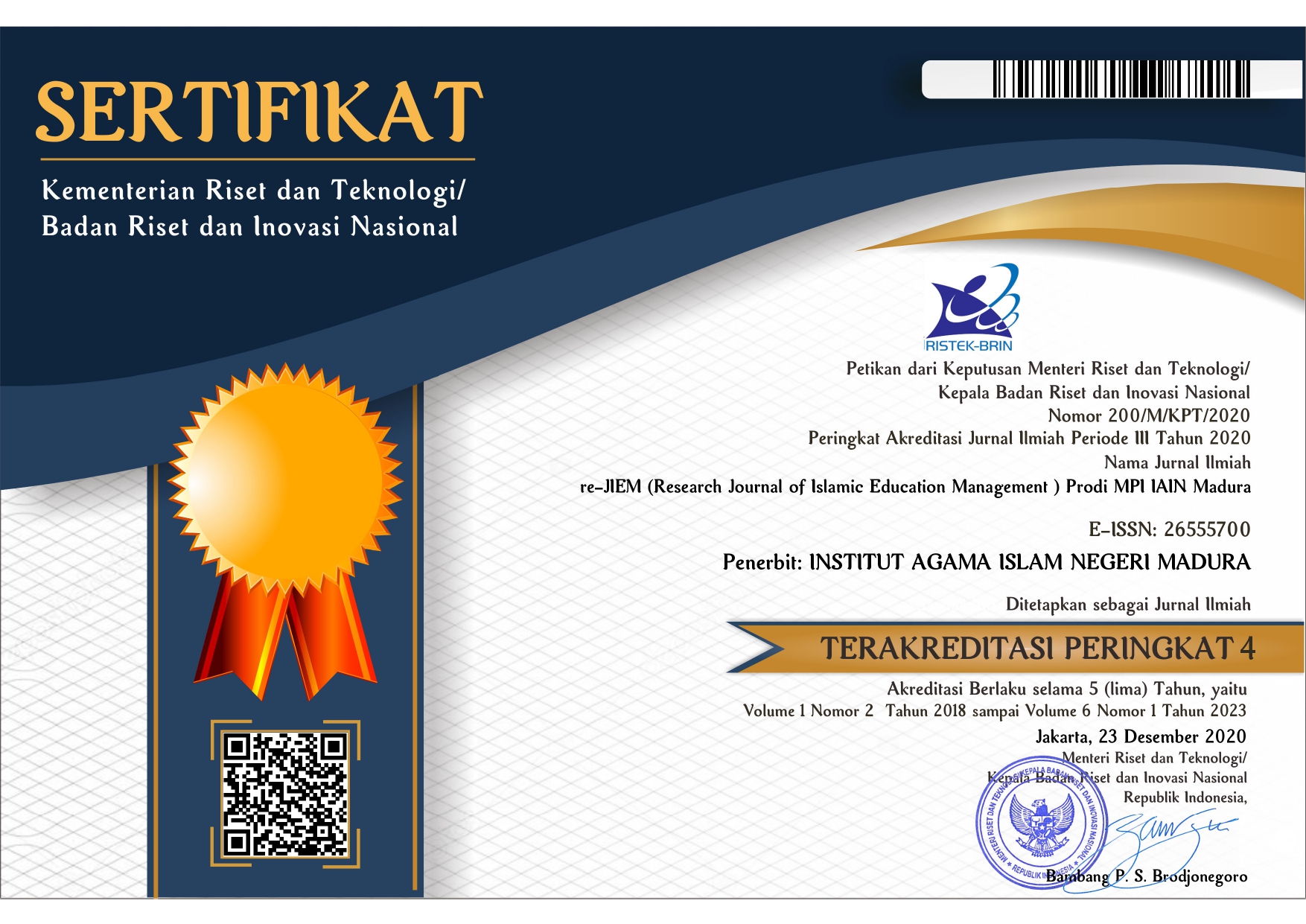MENGOPTIMALKAN MEDIA DIGITAL DALAM MEMPERTAHANKAN REPUTASI POSITIF PERPUSTAKAAN DI SMKS PGRI 1 NGAWI
 Abstract views: 196
,
Abstract views: 196
,
 PDF downloads: 178
PDF downloads: 178
Abstract
Along with the development of the times, libraries are currently facing challenges that require them to maintain their existence. By using electronic devices, an academic can obtain references wherever they are, without having to go to the library. Digital media makes it easy for libraries to share information about the latest collections, library services, and learning resources, while increasing their positive reputation in the eyes of the public. The purpose of this study is to optimize the use of digital media to maintain the positive reputation of the library. This study uses a descriptive qualitative method, namely a research method that describes existing events. The results of this study are that the SMKS PGRI 1 Ngawi Library utilizes digital media by uploading content such as interesting photos and videos on Instagram to promote services and new book collections. In addition, the library also uses automation applications to improve the quality of service.
Downloads
References
Asrori, Mohammad. “Pengertian, Tujuan Dan Ruang Lingkup Strategi Pembelajaran.” Madrasah 6, no. 2 (2016): 26. https://doi.org/10.18860/jt.v6i2.3301.
Azwar, Muhammad. “MEMBANGUN SISTEM OTOMASI PERPUSTAKAAN DENGAN SENAYAN LIBRARY MANAGEMENT SYSTEM ( SLIMS ),” n.d., 19–33.
Kurniasih, Nuning. “Optimalisasi Penggunaan Media Sosial Untuk Perpustakaan.” Prosiding Makalah Seminar Nasional “Komunikasi, Informasi Dan Perpustakaan Di Era Global,” 2016, 1–9.
Mahmudah, Siti Muslichatul, and Muthia Rahayu. “Pengelolaan Konten Media Sosial Korporat Pada Instagram Sebuah Pusat Perbelanjaan.” Jurnal Komunikasi Nusantara 2, no. 1 (2020): 1–9. https://doi.org/10.33366/jkn.v2i1.39.
Nurhayati, Luthfi. “Branding Akun Media Sosial Perpustakaan Sebagai Strategi Promosi Perpustakaan Di Era Digital.” Program Studi Ilmu Perpustakaan, Fakultas Ilmu Budaya, Universitas Diponegoro, 2022, 1–11.
Prayoga, Willyan Dafit, Muhammad Bakri, and Yuri Rahmanto. “Aplikasi Perpustakaan Berbasis OPAC (Online Public Access Catalog) Di SMK N 1 Talangpadang.” Jurnal Informatika Dan Rekayasa Perangkat Lunak 1, no. 2 (2020): 183–91. https://doi.org/10.33365/jatika.v1i2.552.
Puspitasari, Dian, Fachrina Aprilia, and Asri Dwi Suwarti. “Penguatan Citra UPT Perpustakaan UMM Melalui Media Sosial Untuk Meningkatkan Peran Dan Fungsi Di Era Masyarakat 5.0.” Jurnal FPPTI 3, no. 1 (2024): 10–19. https://doi.org/10.59239/jfppti.v3i1.48.
Rahmani, Aurima. “Efektivitas Komunikasi Di Perpustakaan Berbasis Media Sosial Terhadap Kemudahan Akses Informasi Bagi Masyarakat Digital.” JIPI: Jurnal Ilmu Perpustakaan Dan Informasi, 2023, 1–10.
Rusandi, and Muhammad Rusli. “Merancang Penelitian Kualitatif Dasar/Deskriptif Dan Studi Kasus.” Al-Ubudiyah: Jurnal Pendidikan Dan Studi Islam 2, no. 1 (2021): 48–60. https://doi.org/10.55623/au.v2i1.18.
Saleh, Abdul Rahman. “Pengembangan Perpustakaan Digital.” Tangerang Selatan: Universitas Terbuka 2 (2016): 480 hlm., 21 cm.
Sri Anitah W. “Strategi Pembelajaran.” Modul Strategi Pembelajaran PKN 1 (2019): 13.
Suwandi, Ahmad, and Nazla Daulay. “Peranan, Dan Kendala Pengembangan Agroindustri.” Jurnal Inovasi Penelitian 2, no. 2 (2022): 92.
Tangoi, Az Zahra Suci. PENGARUH KUALITAS PELAYANAN TERHADAP REPUTASI PERPUSTAKAAN UMUM KOTA DEPOK. UIN Syarif Hidayatulloh. Vol. 15. Jakarta, 2024.
Wardhani, R T, and G R Putri. “PENGGUNAAN MEDIA SOSIAL UNTUK PROMOSI PERPUSTAKAAN TAMBAH ILMU SD NEGERI TAMBAHMULYO 01 KECAMATAN JAKENAN KABUPATEN PATI.” LIVRE: Jurnal Perpustakaan Dan Informasi, 2024.
Copyright (c) 2025 Zuhriana Widya Rahayuning Tyas, Rita Mayang Saputri, Sholihatus Salamah, Umi Chofshoh

This work is licensed under a Creative Commons Attribution-ShareAlike 4.0 International License.
Authors who publish with this journal agree to the following terms:
Authors retain copyright and grant the journal the right of first publication with the work simultaneously licensed under a Creative Commons Attribution-ShareAlike 4.0 International License that allows others to copy and redistribute the material in any medium or format with an acknowledgment of the work's authorship and initial publication in this journal and also allows them to remix, transform, and build upon the material for any purpose, even commercially, with contributions under the same license as the original.
Authors are able to enter into separate, additional contractual arrangements for the non-exclusive distribution of the journal's published version of the work (e.g., post it to an institutional repository or publish it in a book), with an acknowledgment of its initial publication in this journal.
Authors are permitted and encouraged to post their work online (e.g., in institutional repositories or on their website) prior to and during the submission process, as it can lead to productive exchanges, as well as earlier and greater citation of published work.




















